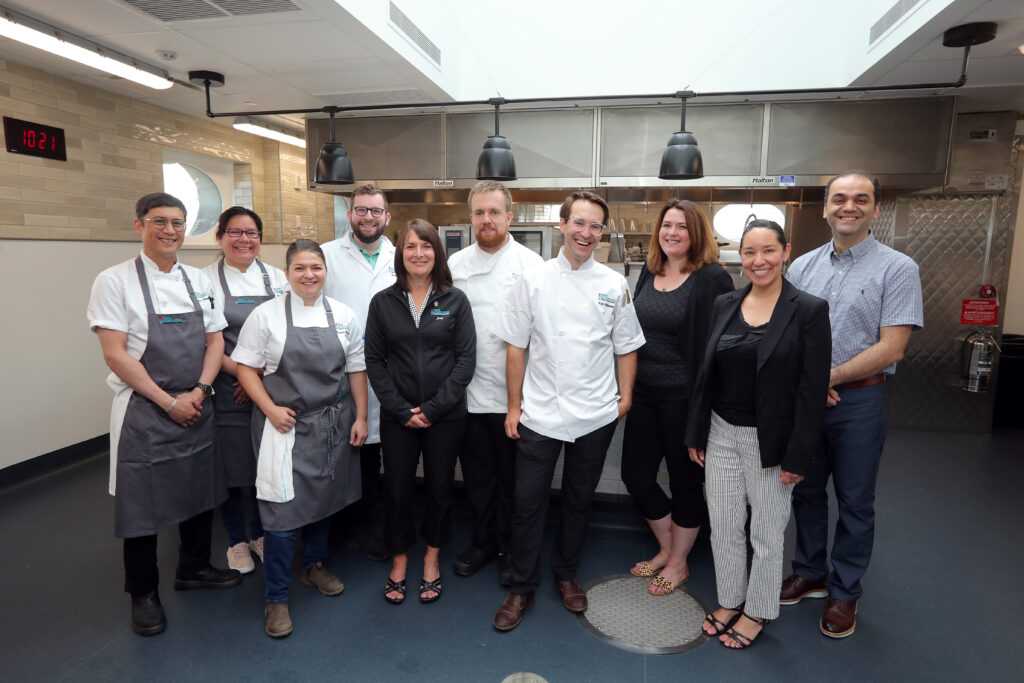RRC Polytech’s Prairie Research Kitchen serves up success with ‘From Lab to Table’ research recipe book
This is not your average cookbook – in fact, RRC Polytech’s Prairie Research Kitchen’s (PRK) From Lab to Table is one of the first of its kind in Manitoba and features over 60 different applied research recipes developed in collaboration with various industry partners over the last eight years.
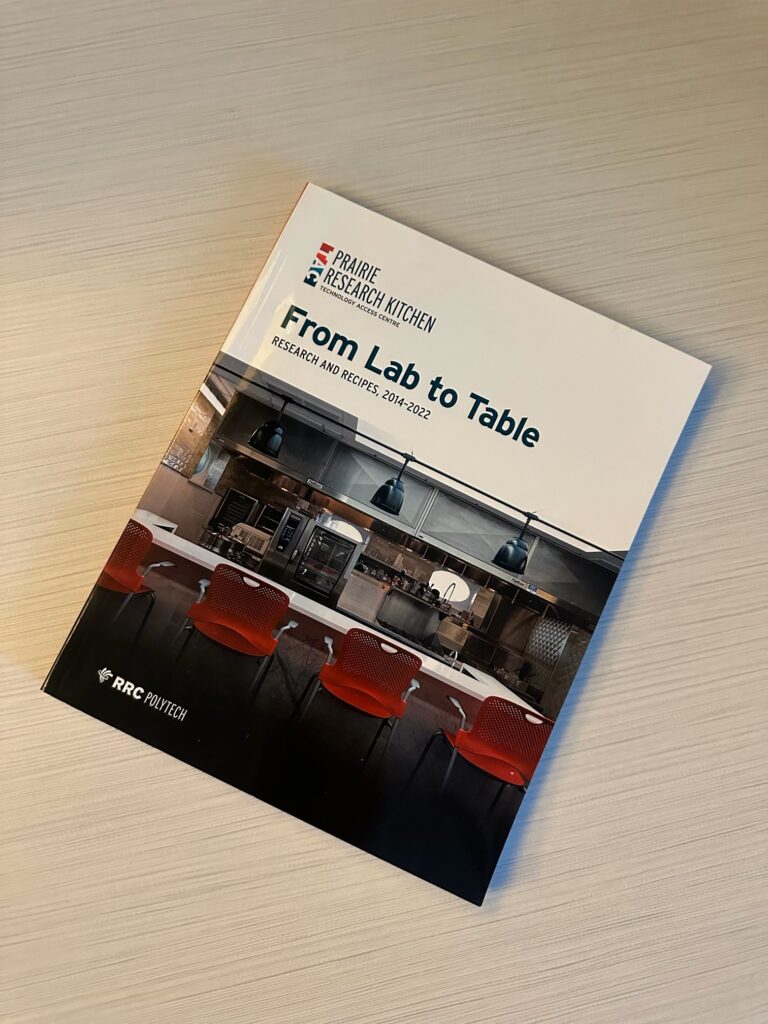
“This Culinary Research Review, in the form of a cookbook takes an engaging approach to sharing the outcomes of applied research conducted since PRK began collaborating with partners in 2014,” said Mavis McRae, Director of PRK.
“Recipe development is one of the best ways we can test out research results from food – eating and tasting it, and over the last eight years we have amassed a lot of recipes using innovative new foods. By compiling and sharing what we have accomplished, we celebrate the achievements of PRK and the partnerships with clients who have supported us to share these recipes. We hope this work inspire readers with ideas for new advances in food product development and culinary research.”
What makes this tasty and innovative work that takes place on the 11th floor of RRC Polytech’s Paterson GlobalFoods Institute unique is the interplay between PRK’s two mandates: to help industry produce new food products, and to train students to become tomorrow’s culinary industry and research professionals.
The research and recipe cookbook begins with a detailed retrospective history of Culinary Research and funding partnerships at RRC Polytech written by PRK Director, Mavis McRae. It showcases investments made by Natural Sciences and Engineering Research Council of Canada (NSERC), National Research Council of Canada Industrial Research Assistance Program (NRC IRAP), Canada Foundation for Innovation (CFI) and Research Manitoba in providing valuable infrastructure and research grants to companies that have helped PRK become what it is today.
The next pages are broken down into four recipe sections: Capacity Building Projects, Client Projects, Indigenous Engagement and Staff Picks. Each page that follows explains the history of various industry partnerships and features a comprehensive overview of the projects, objectives and the mouthwatering results in the form of recipes readers can try themselves!
“Each section of this book focuses on the specific ways our culinary research team and students have helped industry partners, and highlights the results our collaborations have achieved, while underscoring the opportunities these collaborations have created for students to gain hands-on skills in culinary arts and research.” said McRae.
Capacity Building Projects focuses on projects and recipes that served as the building blocks of the culinary research program. The capacity building projects helped generate awareness with internal and external partners of the PRK capabilities as research and culinary chefs. Partnerships include Manitoba Pulse and Soybean Growers, Pea Tempeh – a student project to teach research methodology, Pulse Canada and Manitoba Agriculture and recipes range from a chicken pot pie with pinto bean crust, to tempeh nachos with a roasted corn salsa and lime crema, or for something sweet, a candy cane miso caramel popcorn or pistachio coconut crème pâtissière.
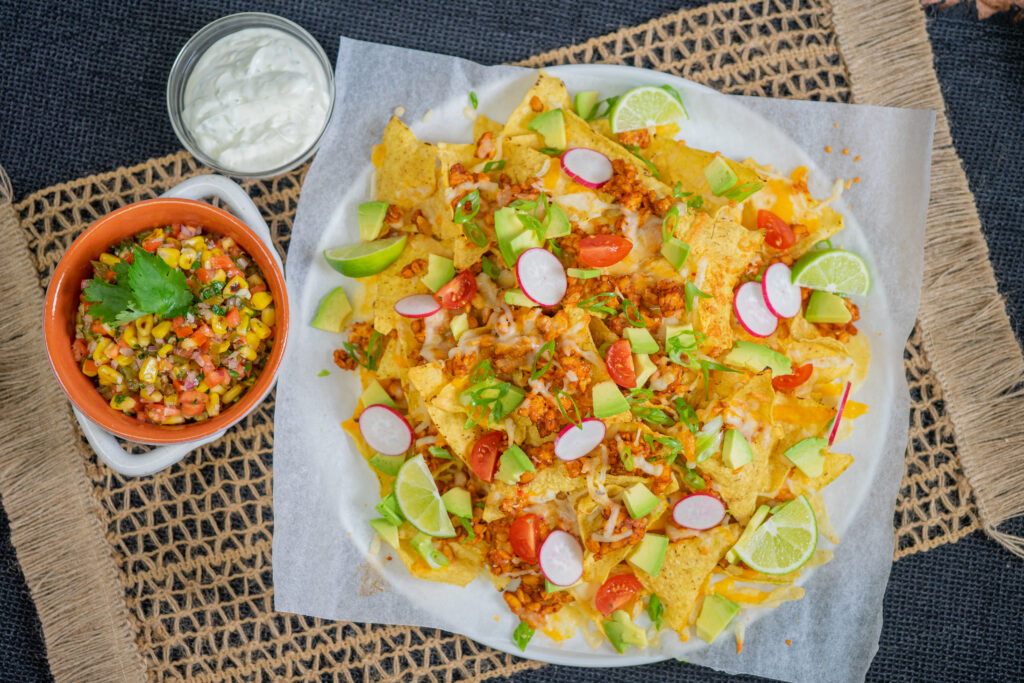
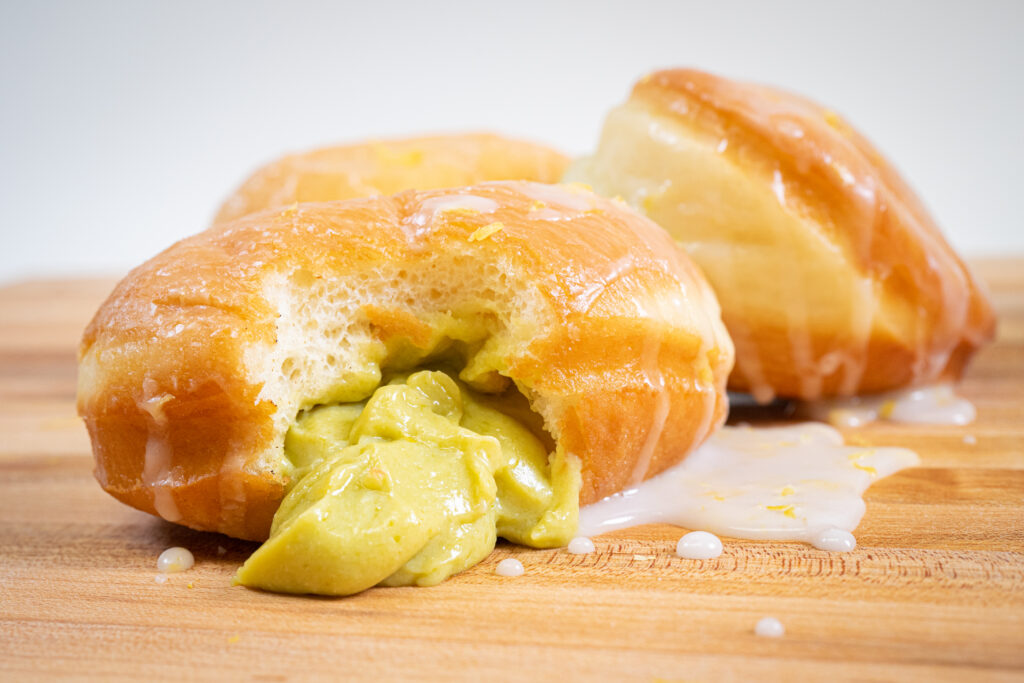
In the next section, Client Projects, explores the way PRK engages students and instructors on industry-initiated applied research projects that enhance their knowledge and expertise within an ever-changing industry landscape. It outlines the variety of ways PRK’s Culinary Research engaged with small- and medium-sized enterprises (SMEs) using technology and knowledge to meet a client’s vision – from developing new projects and commercialization, to seeking new applications for ingredients to enhance consumer experience and meet new market demands.
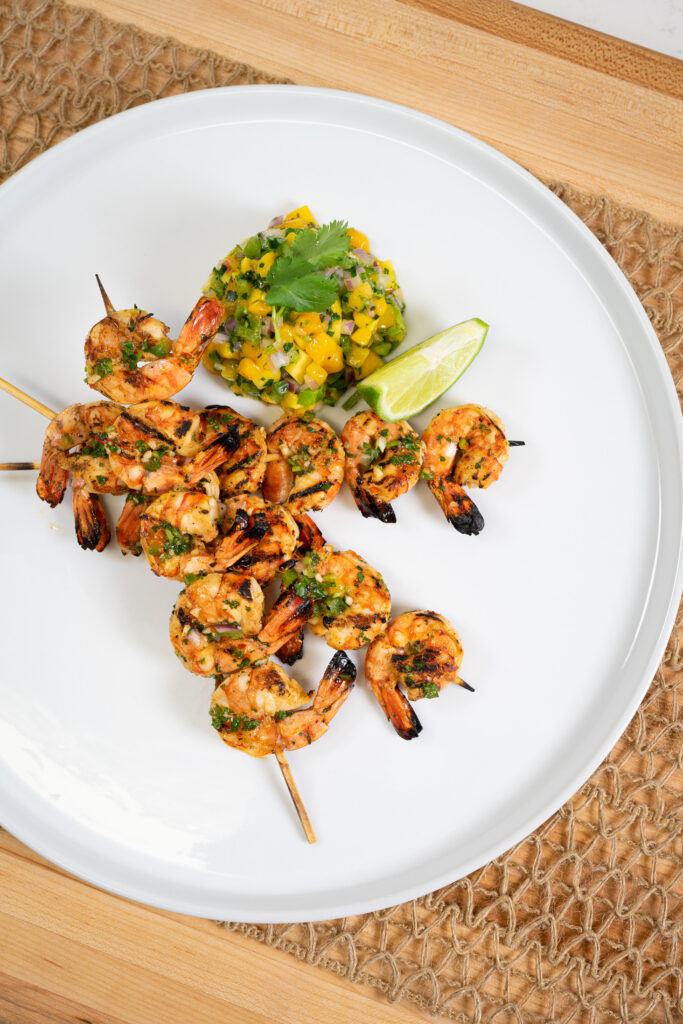
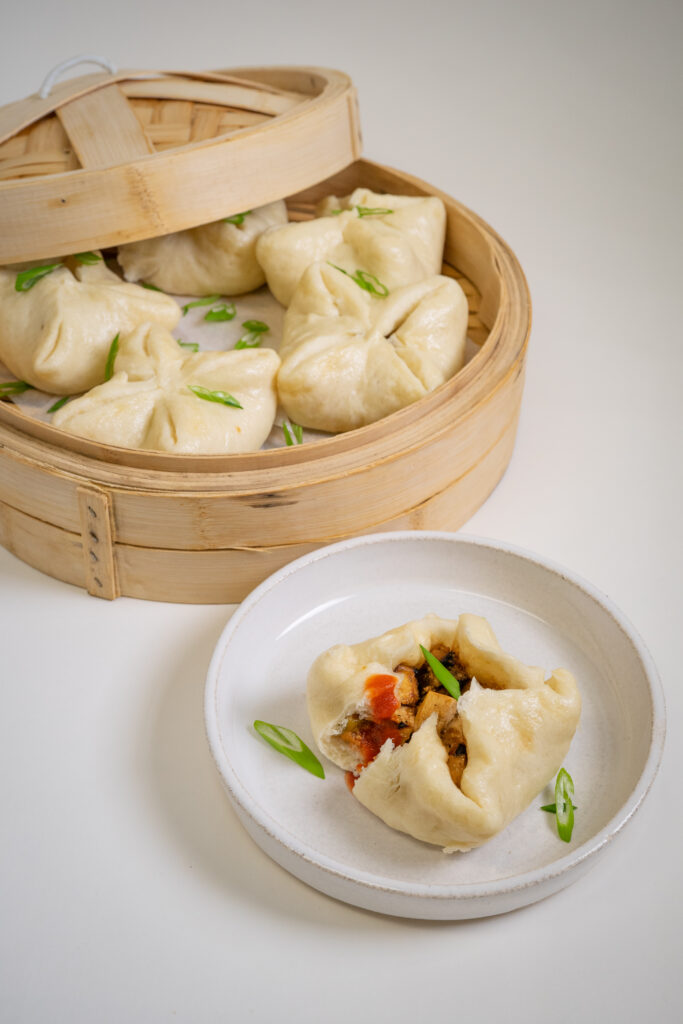
Partnerships include Prairie Fava, Juno Food Labs, Big Mountain Foods and Richardson International and in this section there are recipes for any meal of the day – cinnamon toast pancakes with cereal milk whipping cream for breakfast, summer rolls with tamarind sauce or lentil perogies for lunch, and finally a dan dan noodle bowl or fried chicken for the finale.
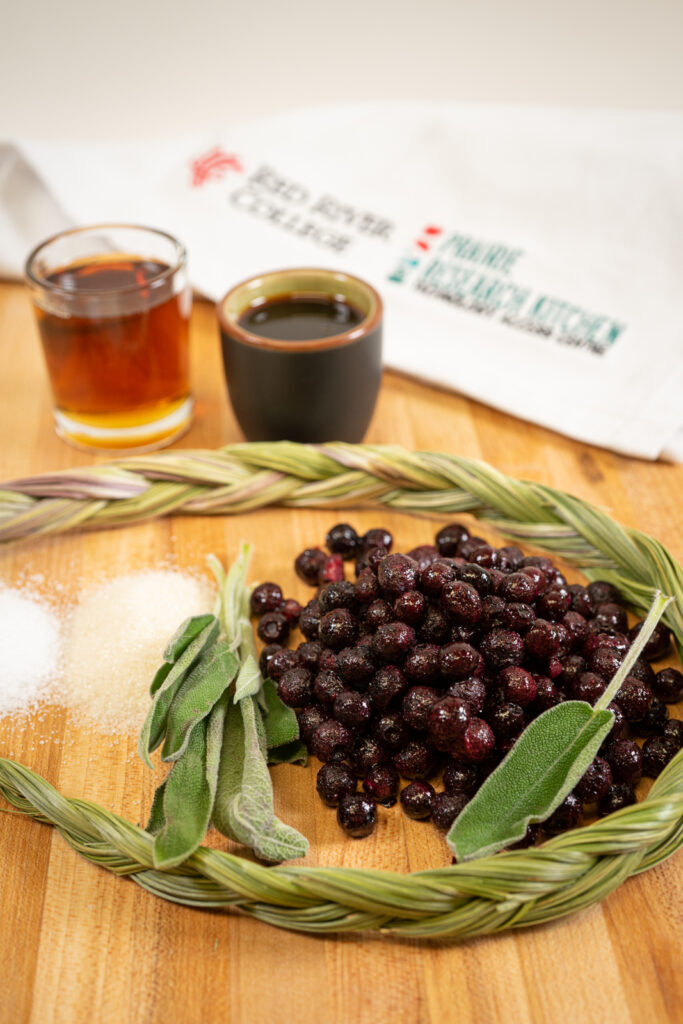
In the third recipe section, Prairie Research Kitchen focuses on incorporating Indigenous knowledge and engagement in food development opportunities and training – a key strategic priority for the College. This chapter brings together projects PRK has worked on featuring Indigenous foods, businesses and projects involving the chef instructors and student chefs from the School of Indigenous, Education’s Culinary Skills program. It includes recipes for a wild blueberry sauce, three sisters soup with smoked duck and wild rice buttermilk pancakes and wild rice Bannock.
The final section of the book features the people and recipes that make up culinary research and RRC Polytech’s Prairie Research Kitchen multidisciplinary team, complete with fun facts and quotes about the work and partnerships they care so deeply for that helped inspire the completion of this book.
“This innovative and tasty research recipe cookbook, From Lab to Table, is an important outcome of the Technology Access Centre Prairie Research Kitchen’s dissemination of knowledge gained through research to ensure economic prosperity for Canada and the future generations,” said McRae.
“The world of research is ever-changing – and for that reason, Prairie Research Kitchen will continue to adapt and grow in the years ahead. A lot of great ideas have started here, and we look forward to seeing the products of our creativity and collaboration hit grocery store shelves and reach dinner tables in the years ahead.”
The physical printed book isn’t for sale, however interested aspiring chefs can view the online version of From Lab to Table here. Copies of the book will also be used for special gifts, door prizes, and provided to partners who continue to support RRC Polytech.
